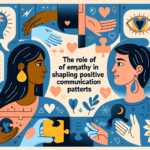
Introduction
Have you ever pondered the rich tapestry of opportunities that lies at the intersection of mental health and academic achievement? If so, diving deep into the world of psychology might be your key to a fulfilling career. A master’s degree in psychology serves not only as a stepping stone to more advanced studies but also opens doors to a multitude of exciting specializations. In this comprehensive guide, we will explore what you can do with a master’s in psychology, illustrating the diverse pathways available to you.
Psychology is more relevant than ever in today’s fast-paced, stress-laden society. As we delve into the various specializations within this field, you’ll gain insights that not only educate but also inspire you to take the next step toward your career aspirations. Are you ready to embark on this transformative journey? Let’s dive in!
The Scope of a Master’s in Psychology
A master’s in psychology equips you with fundamental skills that can be applied in multiple settings—be it clinical, educational, organizational, or community-based. Your graduate education provides insight into human behavior, cognitive processes, and emotional well-being, making you a vital asset in diverse work environments.
Core Competencies
When pursuing a master’s in psychology, you typically cover essential areas, including:
- Research Methods: Understanding how to conduct and analyze psychological research.
- Statistics for Psychology: Learning to interpret and apply statistical data in research.
- Ethics in Psychology: Gaining awareness of ethical considerations in psychological practice.
These competencies are not only foundational for continued education but serve as crucial tools for various career paths you may choose to follow.
Specializations in Psychology: Pathways You Can Explore
With a master’s degree in psychology, the world is your oyster. Below are some of the most promising specializations, each with its unique opportunities and requirements.
1. Clinical Psychology
What It Involves:
Clinical psychologists diagnose and treat mental health disorders, emotional disturbances, and dysfunctional behavior. They often work in hospitals, clinics, or private practices.
Case Study:
Dr. Sarah Thompson started as a clinical psychologist focusing on anxiety disorders. After completing her master’s degree, she established her private practice and utilized cognitive-behavioral therapy (CBT) to help clients. Her success stemmed from being able to tailor treatment plans to individual needs, showcasing the importance of specialized training in diagnosing and treating specific issues.
Relevance:
Clinical psychology provides a profound understanding of various mental health issues, making it one of the most sought-after specializations.
2. Educational Psychology
What It Involves:
Educational psychologists focus on how people learn and the best practices for teaching. They often work in schools and educational institutions, assessing and developing programs for students with learning disabilities.
Case Study:
Dr. Emily Chen, armed with her master’s in psychology, implemented innovative strategies in a local middle school. Her research on learning styles led to the development of individualized learning plans that drastically improved student performance.
Relevance:
This specialization is crucial in shaping educational environments that nurture diverse learning needs, making it an invaluable field in today’s educational landscape.
3. Industrial-Organizational Psychology
What It Involves:
This branch focuses on workplace behavior and how to improve employee performance and well-being. I-O psychologists often work in human resources, consulting firms, or corporate settings.
Case Study:
After earning her master’s, Lisa Patel worked with an organization aiming to enhance employee morale. Her application of psychological theories helped reduce turnover rates and increased overall job satisfaction among staff.
Relevance:
The insights gained from a master’s in psychology can drive significant enhancements in business environments, proving that psychology is indispensable outside the traditional therapy settings.
4. Forensic Psychology
What It Involves:
Forensic psychologists apply psychological principles to legal issues, often working with criminal justice systems. They may assess offenders, provide expert testimony, or create rehabilitation programs.
Case Study:
Dr. Mark Holland specialized in the assessment of juvenile offenders. His research on developmental psychology greatly influenced the rehabilitation programs he designed, emphasizing the importance of early intervention.
Relevance:
Forensic psychology marries law and mental health, creating a niche that is both challenging and rewarding, pivotal in shaping court cases and rehabilitation strategies.
5. Health Psychology
What It Involves:
Health psychologists study how mental, emotional, and social factors influence physical health. They focus on promoting healthier lifestyles and coping with illness.
Case Study:
Dr. Laura Smith worked with patients diagnosed with chronic illnesses. Using her skills, she developed intervention programs that incorporated psychological techniques to improve patients’ quality of life.
Relevance:
As society becomes increasingly aware of the mind-body connection, health psychology offers a fulfilling avenue for those looking to make a difference in healthcare.
A Comparative Overview of Specializations
| Specialization | Core Focus | Work Settings | Key Skills Required |
|---|---|---|---|
| Clinical Psychology | Diagnosis & Treatment | Hospitals, Private Practice | Assessment, Therapy, Empathy |
| Educational Psychology | Learning & Teaching Methods | Schools, Universities | Research, Instructional Design, Assessment |
| Industrial-Organizational | Workplace Behavior | Corporations, Consulting Firms | Data Analysis, Communication, Strategy |
| Forensic Psychology | Legal & Criminal Justice Systems | Courts, Correctional Facilities | Evaluation, Report Writing, Criminal Profiling |
| Health Psychology | Mind-Body Connection | Hospitals, Private Practice | Counselling, Advocacy, Research |
Table 1: Overview of Key Specializations in Psychology
The Job Market: Where Are the Opportunities?
Understanding the job landscape is vital when considering your specialization. The Bureau of Labor Statistics (BLS) projects that employment for psychologists will grow steadily through 2031, emphasizing the increasing need for mental health professionals across various sectors.
Demand by Specialization
- Clinical Psychology: Continues to see significant demand due to the mental health crisis.
- I/O Psychology: Companies increasingly value employee mental health and organizational efficiency, fostering job growth.
- Forensic Psychology: The rise in criminal cases calls for more forensic experts.
- Health Psychology: As awareness of mental health expands in healthcare settings, the demand for health psychologists grows.
Table 2: Projected Job Growth Rate by Specialization
| Specialization | Projected Growth Rate (2021-2031) |
|---|---|
| Clinical Psychology | 14% |
| Educational Psychology | 10% |
| Industrial-Organizational | 8% |
| Forensic Psychology | 6% |
| Health Psychology | 9% |
Conclusion
As we conclude our exploration of specializations in psychology, it is clear that a master’s in psychology can lead to numerous rewarding paths. Whether you choose to become a clinical psychologist, an educational psychologist, or venture into organizational psychology, each specialization offers unique opportunities to impact people’s lives positively.
The world of psychology is ever-evolving, and your choice of specialization can influence not only your career but also the well-being of countless individuals. Embrace your passion, harness your education, and let your journey lead you to a fulfilling career in psychology!
FAQs
1. What is the average salary for someone with a master’s in psychology?
The average salary varies depending on specialization. For instance, those in clinical psychology can expect around $70,000, while I-O psychologists may earn average salaries closer to $80,000.
2. Do I need a PhD after my master’s to practice psychology?
It depends on your specialization. Clinical psychologists typically require a doctorate, while other fields like educational or I-O psychology may allow for master’s level practice.
3. How long does it typically take to earn a master’s in psychology?
Most master’s programs take approximately two years of full-time study.
4. Can I practice psychology online?
Yes, many online programs offer master’s degrees in psychology, especially in specializations such as I-O psychology.
5. What skills will I gain with a master’s in psychology?
You’ll develop skills in research, critical thinking, communication, and ethical practice, all essential for addressing complex human behavior in your chosen field.
By taking bold steps toward your career in psychology, you are embracing a future filled with possibilities. We hope this guide has enriched your understanding and prepared you for what lies ahead on your journey—one filled with knowledge, impact, and personal growth. Keep exploring specializations and discover what you can do with a master’s in psychology!

















